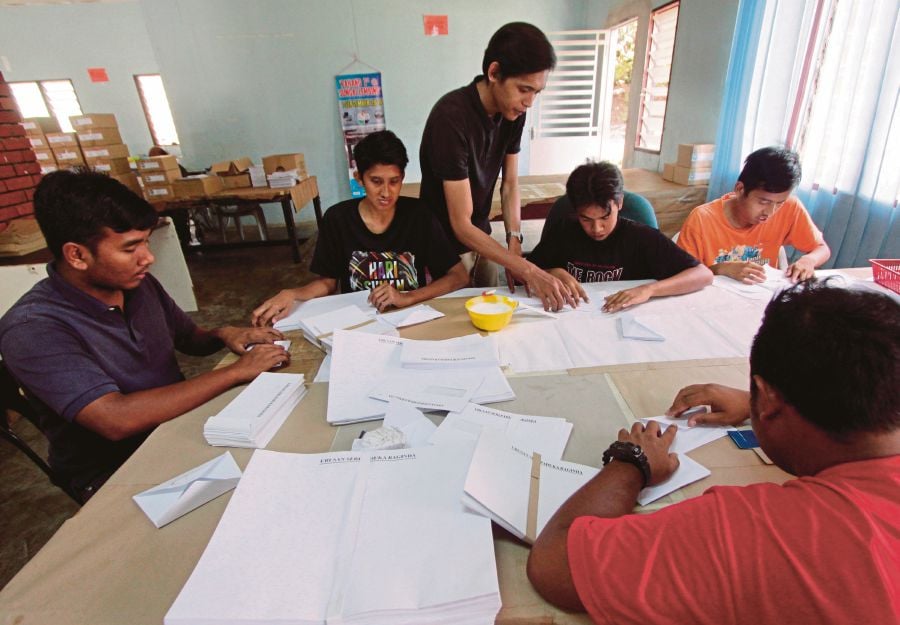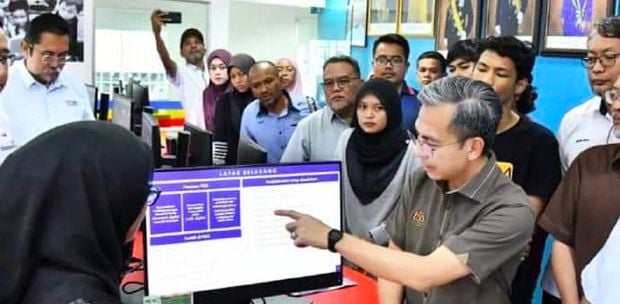KUALA LUMPUR: THE 2020 Budget has been hailed by non-governmental organisations and women activists as putting women issues at the centre of focus. In particular, it offers a slew of incentives to enhance women’s participation in the workforce.
In lauding the 2020 Budget, Women’s Aid Organisation (WAO) said the new RM500 million guarantee facility for women entrepreneurs under the Business Loan Guarantee Scheme (SJPP), for example, underlines the government’s commitment to ensure women’s economic rights while building a robust economy.
Its executive director, Sumitra Visvanathan, said WAO was excited to hear about the Women@Work incentives to encourage and enable women to return to work.
Women@Work aims to create 33,000 jobs a year for women between the ages of 30 and 50 who have stopped working for a year or more.
Under the initiative, women who go back to work will be given a salary incentive of two years (RM500 a month), while the employer will be given a hiring incentive of RM300 a month for the same period.
In addition, income tax exemptions for women returning to work will be extended for another four years through 2023.
Sumitra said the allocation of RM30 million for childcare facilities, especially in schools and hospitals, was significant and a welcome incentive.
“Access to childcare facilities will enable more women to participate in the workforce, as currently, a total of 2,563,800 women are not working due to family commitments.”
In addition, to ease the financial burden of parents who send their children for early childhood education to nurseries (Taska) and registered preschools (Tadika), the individual tax relief for fees paid will be increased from RM1,000 to RM2,000.
According to Sumitra, public funding for childcare is critical because it is largely out of reach for many parents, especially those from the low-income groups. In 2017, only 6.9 per cent of children aged 1 to 4 were enrolled in childcare, quoting a World Bank report.
“We are pleased that some positive amendments to the Employment Act have been announced, including increased paid maternity leave, improved sexual harassment protection and prohibition of discrimination on the basis of gender, race and religion.
“We look forward to seeing the rest of the amendments to the Employment Act, including paid paternity leave, which we hope to be at least seven days. We urge the government to ensure prohibition of discrimination to include jobseekers, not just employees.
“These improvements should also be extended to the Sabah Labour Ordinance and the Sarawak Labour Ordinance.”
The 2020 Budget announced the review of the Employment Act 1955 to include increased maternity leave from 60 days to 90 days effective from 2021, improved handling of sexual harassment complaints in terms of protection and procedures, and provisions on the prohibition of discrimination in occupations such as religion, race or gender.
Women’s rights advocate and secretary-general of the Society for the Promotion of Human Rights, Ivy Josiah, said while the RM30 million allocation for Taska facilities, especially in hospitals and schools, was a step in the right direction, there needed to be synergy between ministries namely the women, housing, transport and education, to ensure the allocation was enjoyed by those who are deserving.
“There needs to be infrastructural changes because it is brutal to have to walk so far to make a living and not even have subsidised, safe and accessible childcare centres nearby.
“Some of the urban poor are forced to raise latchkey kids while they are at work, with no peace of mind.”
Ivy said although the increase in allocation for childcare centres was welcomed, the tax relief was not going to affect the urban poor.
“Most of the urban poor and bottom 40 (B40) parents don’t earn enough to be paying tax, so that does not involve them. We must not look at each point in isolation, for the urban poor especially, all their basic needs have to be synergised and most of it revolves around infrastructure, from bus services, to work and safe childcare care service.”
The National Council of Women’s Organisations (NCWO) Professor Dr Kiranjit Kaur described increasing maternity leave from 60 to 90 days effective 2021, as a positive and welcome change.
“Women generally have been wanting more maternity leave. They need more time to be more comfortable with their new baby and to recuperate.”





